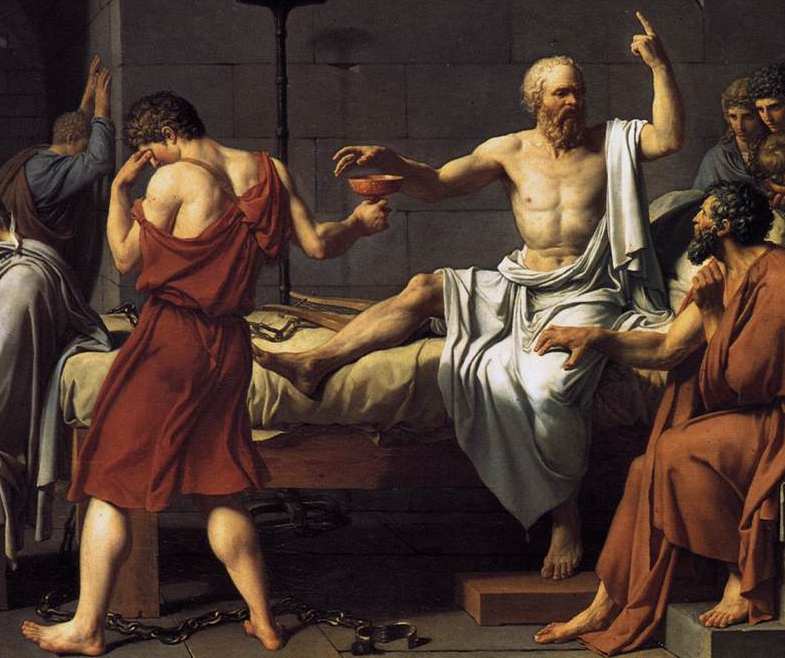In a particular scene in "Zorba," Zorba's young friend Nikos, annoyed by his older companion's encouragement to be what he feels is inappropriately forward and amorous, protests, "I am not an animal!" Zorba, delighted by his friend's sudden fire, rejoins "Yes, you are!" In this musical's delightfully passionate book, we're treated to a lot of Zorba's personal philosophies, and one of them being his attitude toward women, which is all at once tender and poetic as well as lusty, spontaneous and sanguine. Zorba is never apologetic, he's nearly always self-possessed, and while it seems like he encourages spur of the moment action without thought, he is driven by his own principles of seizing life, positions he's arrived at during life experience - as opposed to Nikos, who is learned and educated, but relatively inexperienced.

If Nikos needs to get in touch with his animalistic side, the villagers could often do with a touch of his humanizing restraint and reflection. All at once full of life and afraid of change, the Cretans are written as often superstitious, mocking, tribal, greedy and even murderous. It's into this world that Nikos and the mysterious widow attempt to have a relationship, and are thwarted by the town's prejudice against one of their own, though shunned coupling with an outsider after rejecting their own. Led by the men of the town who simultaneously desire (perhaps desire to control) AND despise this proud, reclusive woman, they surround her and have her killed for "driving" a young man to his suicide, while they conveniently absolve themselves of any role in his death (in the version of the play we have, it's written he's running from his tormentors - the townspeople - when he accidentally falls from a cliff's edge, rather than takes a proverbial
lover's leap).
The townspeople are cloistered but intrigued about the arrival of Zorba and Nikos. Wary of outsiders, they still treat Hortense, an older Frenchwoman who has lived on the island for decades, like a stranger. Her house is the only decent lodgings in town (which a song assures us still isn't very good), and still the townspeople try to offer unappealing, primitive-sounding accommodations. They are largely idle and are excited by the prospect of work in a mine. One of the main characters basically lives on his odd jobs - being a messenger, carrying luggage, etc. - and the kindness of people like the widow. Nikos even calls the island a "wild place," and we see the women descend like the "crows" in the song to pluck the widow's fine house clean just moments after her death. In these moments, though - it is Zorba, not Nikos, who is the humanizing force. He appeals to Nikos for calm after he shakes the hand of one of the murdering mob as the mine is opening, and asks him not to judge the scavengers that snatch the widow's belongings - "you can't hurt the dead. Only the living."
As individuals, we see the characters of the townspeople as colorful, curious, and passionate, if rough around the edges. Together, however, they often are a faceless mob, mocking, grabbing, attacking, ravaging.
John Steinbeck, one of my favorite authors, loved to write about how mob mentality could destroy an individual's ability to think as well as human lives. In literature as well as history, mobs are deadly at worst - part of peaceful protest training throughout the years has been to prevent a group of protestors from becoming the mob, from getting aroused to anger as a result of groupthink, because it's very easy to slip into the hypnotic power of the masses. To Steinbeck, a person's ability to think individually and rise above the
"phalanx" was key. I'll never forget getting groped and grabbed at Mardi Gras years ago by I'm sure otherwise normally-acting men - somehow given license to do so by the rowdy crowds gathered. I gave them the benefit of the doubt for their awful behavior - blaming it on mob mentality, hurricanes, and hormones, but it doesn't make it right. If anything, it reinforced my belief that we should keep striving to be a voice of reason and rise ABOVE our "animal" instincts - Zorba knows the animal side of human nature and human psychology, but the important part is that he acknowledges that it's a two-sided coin.
 |
| So did Tom Joad. |
In the mob scenes in this musical, we see Zorba, ever the rugged individualist, ever the singular philosopher, emerge as the hero - not a sinless person, by his own admission, but a self-possessed person who is fully in control of his own ability to react to a situation. That's part of what makes him such an appealing character - he ACTS as opposed to just REacting, and he acts decisively and based on his own personal truths, while encouraging his friends to do the same. What would Zorba do?





